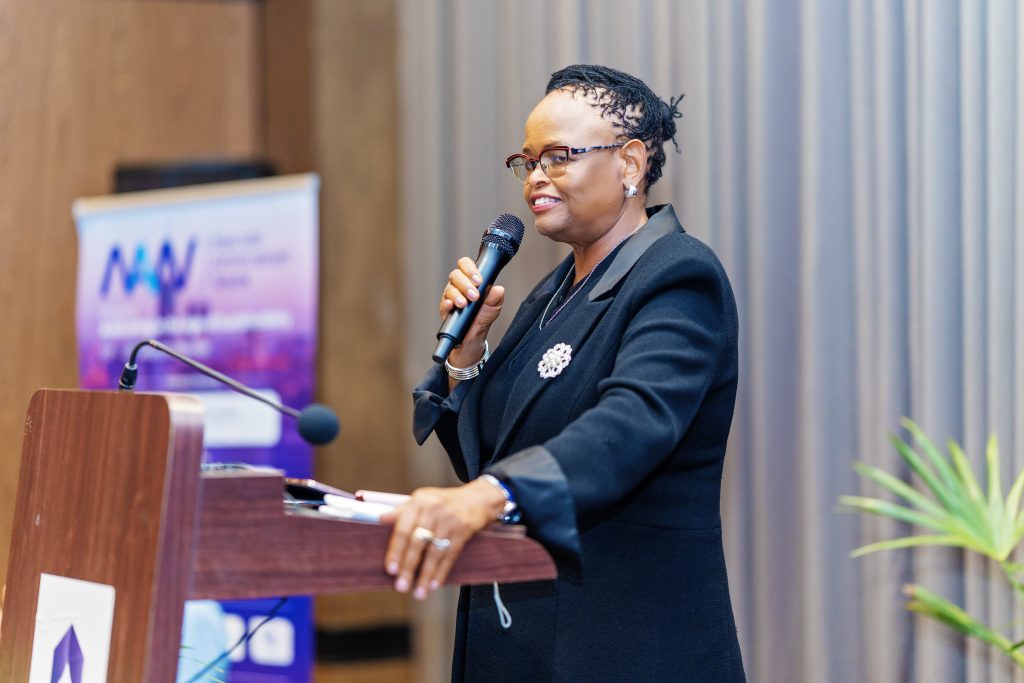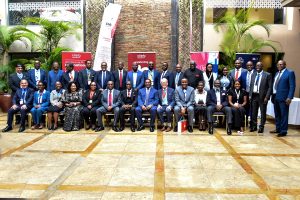At the 9th International Arbitration Conference during the Nairobi Arbitration Week, Chief Justice Martha Koome delivered a powerful address that highlighted the pressing need for sustainability in arbitration practice. Her speech underscored the importance of embracing technology, collaboration, and forward-thinking solutions to ensure that arbitration remains relevant and effective in the face of global challenges. The theme of the conference, “The Path to Sustainability in Arbitration Practice,” resonated well with the overarching need to align arbitration with the evolving dynamics such AI and technology.
Embracing Technology and Digital Transformation
Chief Justice Koome emphasized the critical role that technology must play in the evolution of arbitration. As the world faces the challenges of climate change, digital transformation, and economic shifts, the arbitration process itself must adapt to fit in these changes. Sustainability, she argued, is not just a buzzword, but a necessity—particularly in commercial arbitration.
One of the most immediate areas of focus is reducing the reliance on physical documentation. “Sustainability in arbitration means minimizing the use of paper, embracing electronic filing, and streamlining procedures to reduce costs and minimize carbon emissions,” the Chief Justice said. This reduction in paperwork not only leads to operational efficiencies but also aligns with global efforts to address climate change.
The Role of Artificial Intelligence and Online Dispute Resolution (ODR)
The CJ’s address further explored the promising potential of Artificial Intelligence (AI) and Online Dispute Resolution (ODR) in creating more efficient, affordable, and accessible arbitration processes. While acknowledging that the legal Practitioners still has a long way to go in fully embracing AI, Chief Justice Koome urged the industry not to shy away from it. AI, she noted, has the power to reduce time and costs associated with arbitration, ensuring a more sustainable future for the practice.
Online Dispute Resolution (ODR), in particular, offers significant promise in making arbitration both greener and more inclusive. “ODR allows parties to resolve disputes without the need for physical travel, making it an eco-friendlier and more accessible platform for parties across the globe,” she added.
Africa’s Role in Shaping Global Arbitration Practices
Chief Justice Koome also underscored the importance of positioning Africa as a key hub for arbitration. With the expansion of Africa’s trade framework, the continent must be ready to handle cross-border disputes and ensure that arbitration remains a preferable method of Alternative Dispute Resolution (ADR).
She highlighted the importance of supporting local arbitration institutions such as the Nairobi Centre for International Arbitration (NCIA), the Kigali International Arbitration Centre (KIAC) in Rwanda, and the Lagos Court of Arbitration. These institutions, she stated, are pivotal in ensuring that arbitral matters remain within Africa, therefore promoting it in the continent.
“Africa must come together governments, judiciary, and arbitration centres to create a framework that supports arbitration as a preferred ADR method,” she stated. By doing so, the continent can establish itself as a leading destination for arbitration, attracting more cases that would traditionally be arbitrated elsewhere.
Judicial Support for Sustainable Arbitration
The Chief Justice also spoke about the importance of a pro-arbitration legal framework. She restated the need for Judiciaries to collaborate to ensure that the principles of arbitration are upheld. This include minimizing unnecessary court interventions that would otherwise beat arbitration’s promise of an efficient and quick process. The CJ emphasized that it is essential to maintain the integrity of the arbitration process while encouraging innovation to make arbitration more accessible.
However, she acknowledged that there are challenges in arbitration. The cost of arbitration and issues related to integrity were raised as significant barriers, particularly for small businesses and individuals. To address these, she called for a collaborative effort to reduce arbitration costs, ensure quality, and explore mechanisms like subsidized arbitration programs or structured fees schedules. Such initiatives would make arbitration more accessible to a wider range of participants while maintaining high standards of practice.
Ethics, Integrity, and Accountability
The importance of ethics and integrity in arbitration was another key point in Chief Justice Koome’s address. These two pillars, she argued, are central to the practice of sustainable arbitration. To maintain trust and accountability, regulatory frameworks must be strengthened to ensure that arbitrators adhere to high ethical standards and avoid conflicts of interest. “Ethical practices are essential to ensuring that arbitration remains a reliable and effective means of dispute resolution,” she concluded.
Conclusion: A Call for Collective Action
In conclusion, Chief Justice Koome’s address called for a comprehensive recalibration of arbitration practices to make them more sustainable, efficient, and accessible. By embracing technology, supporting local institutions, and promoting a pro-arbitration legal environment, Africa can become a global leader in arbitration. Moreover, sustainability in arbitration is not only about minimizing environmental impact but also ensuring that the arbitration process remains relevant and equitable for all stakeholders involved.
As we move forward, it is essential that arbitration continues to explore ways to reduce time, costs, and barriers to entry while preserving the integrity and effectiveness of the process. In doing so, arbitration can remain a sustainable and indispensable tool for resolving disputes in the modern world.






